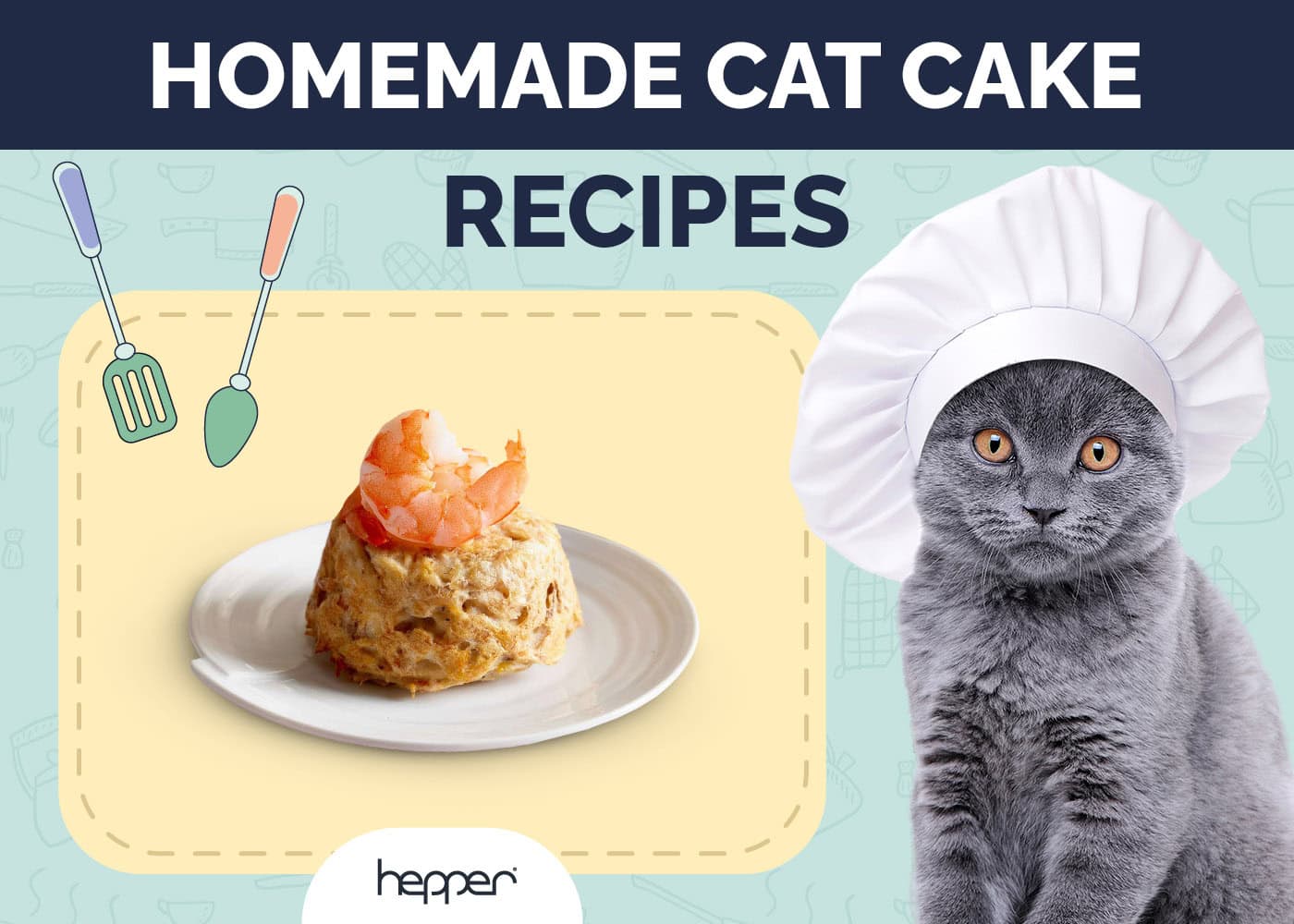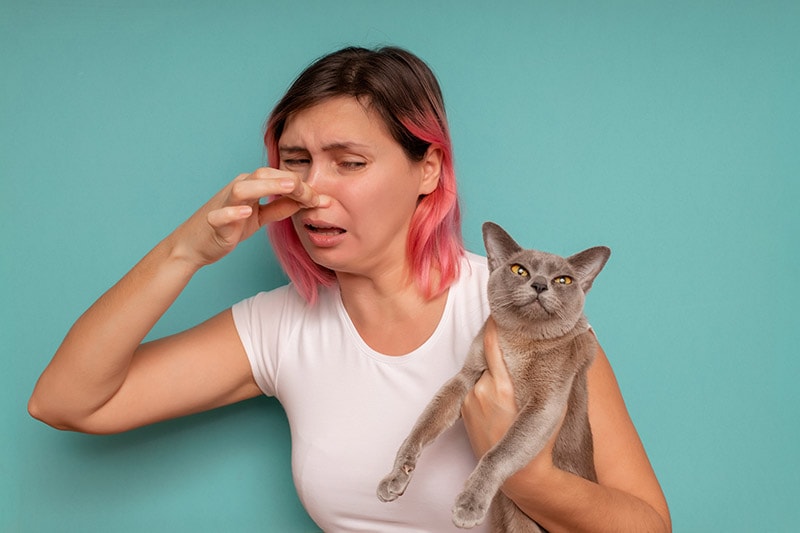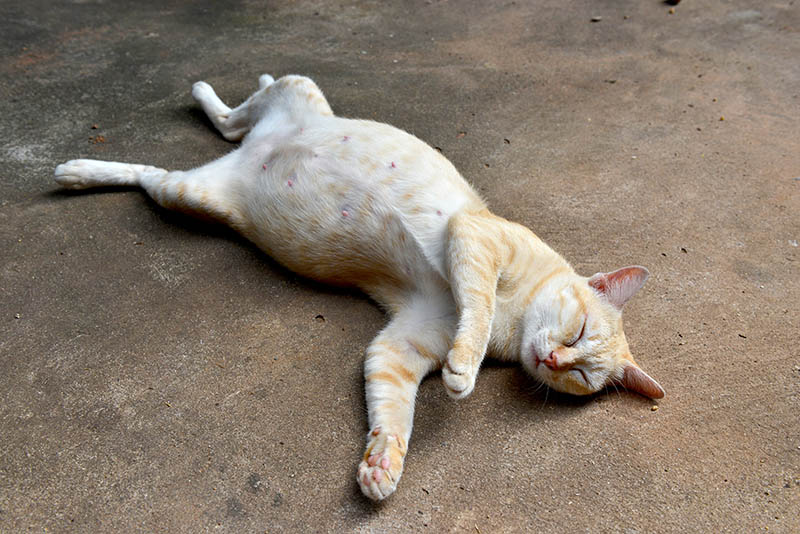Can Cats Eat Paper? 5 Vet-Reviewed Reasons & Solutions
Updated on

Cats do many odd things, including trying to take nibbles from pieces of paper or books. Most cats love to shred, nibble, and eat paper. They see paper as a play item, and not as your favorite book or important work document. However, paper is not meant to be eaten and therefore is not good for cats to eat. If your cat chews on and ingests a tiny amount of paper, it should not harm them. The situation is different if your cat develops a habit of eating paper constantly, though, since there are some hazards you should be aware of.
There are various reasons behind why cats choose to eat paper and why they should not. All these topics will be covered in this article to give you the answers you need.
Is Paper Harmful for Cats to Eat?
It is important to understand that there are certain hazards when your cats play with, chew, or eat paper. The most significant risk is that paper can get stuck in the roof of their mouth or throat which can lead to choking. While the paper is not harmful or detrimental to your cat’s health if they ingest a small piece without choking, it can be harmful over a prolonged period.
Another reason that cats should not be eating paper is that being obligate carnivores, they are unable to digest paper. Large amounts of paper can lead to intestinal blockages. This is more likely to occur in cats who frequently consume large amounts of paper. Veterinary treatment is necessary as soon as you notice any evidence that your cat could be suffering from a blockage.
If your cat is consuming cardboard or magazines with ink on it, then there is a risk that this ink can be potentially toxic to your cat as magazine pages are usually covered with different colored inks. If your cat is acting abnormally after eating paper, then we highly recommend taking them to a veterinarian for a diagnosis and treatment.
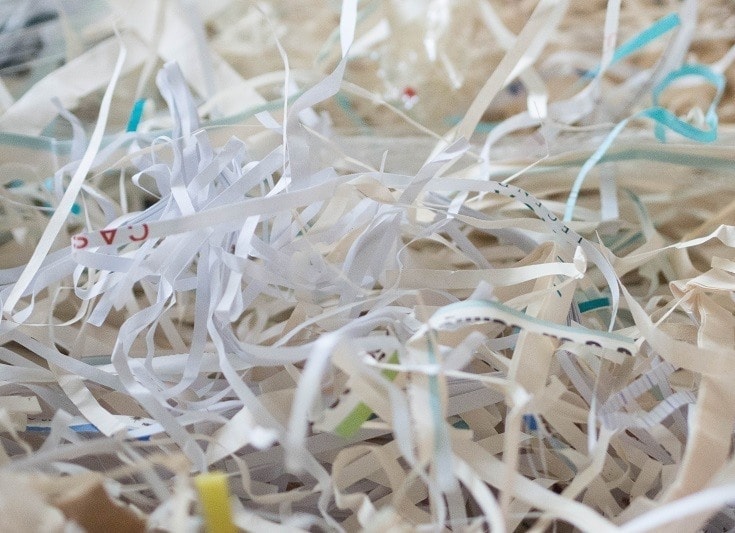
The 5 Reasons Cats May Eat Paper
Most cat owners will find that their cats are obsessed with cardboard boxes or play items. Whether it’s the smell or texture that attracts them, we will never know. What we do know is that it is difficult to keep paper out of your cat’s reach. A curious cat may find paper delightful to play with and they may even chew it and ingest some of the paper.
1. Mouth Problems
There is a concern over whether kittens or cats with teeth issues chew cardboard and paper to relieve any discomfort they may be feeling. Cats that suffer from sore gums or oral pain may find that the texture of paper feels good on their teeth, and they may end up ingesting this material either on purpose or accidentally.
2. Underlying Medical Conditions
Perhaps your cat is suffering from a medical condition that causes them to have an exaggerated appetite, such as hyperthyroidism or diabetes, or they suffer from a condition called pica. Aside from eating paper, cats with pica or thyroid problems will also eat other non-edible items.
Pica causes cats to eat non-edible items for unknown reasons. Certain Oriental cat breeds seem to be more prone to it, leading to think that there might be a genetic component to this behavior. It is vital to get a vet appointment for your cat if they have a tendency to eat objects or foreign materials due to the high risk of blockages or poisoning.
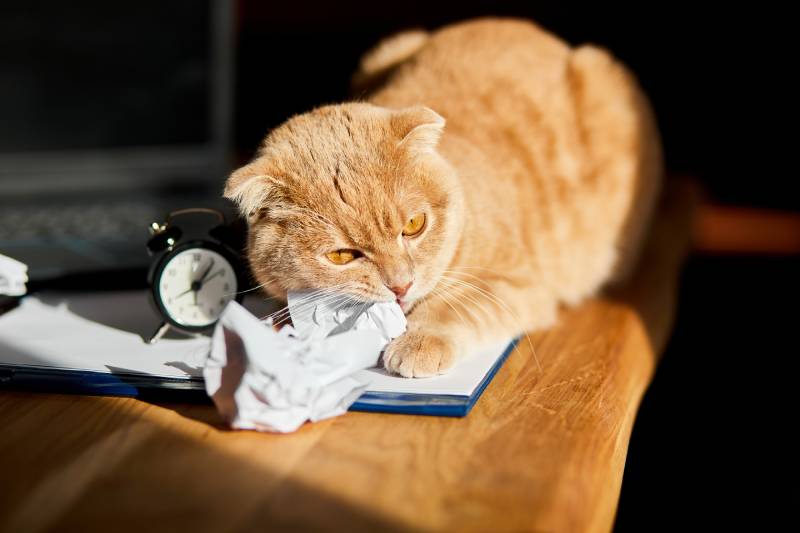
3. Having Fun
Playful cats that may be tired from their toys or lack some stimulation may seek out non-edible items to chew. This can be a nuisance, especially if the paper they are consuming, and chewing are important to you. If your cat does not have enough toys to chew on, then it will search for something else to chew.
Certain textures of cat chew toys may not appeal to your cat, so you will have to introduce them to a variety of toys so that they can decide which texture they like best.
4. Kitten Curiosity
If you leave paper unattended in a curious kitten’s reach or even an adult cat for that matter, then they may start to eat and play with the paper, thinking that it is a toy item. If a piece of paper flies off your desk, your kitten will rush to the chance to play with it. This is a natural behavior and your kitten is still learning.
5. Natural Predatory Behaviour
While many cats consume paper, more cats like to shred paper! This behavior is driven by their instinct to hunt, and it feels nice for cats because the paper itself is lightweight and cats can easily stick their teeth and claws through it. During this play session, they may swallow bits and pieces of the paper, or it may get trapped in their mouth and swallowed at a later stage.
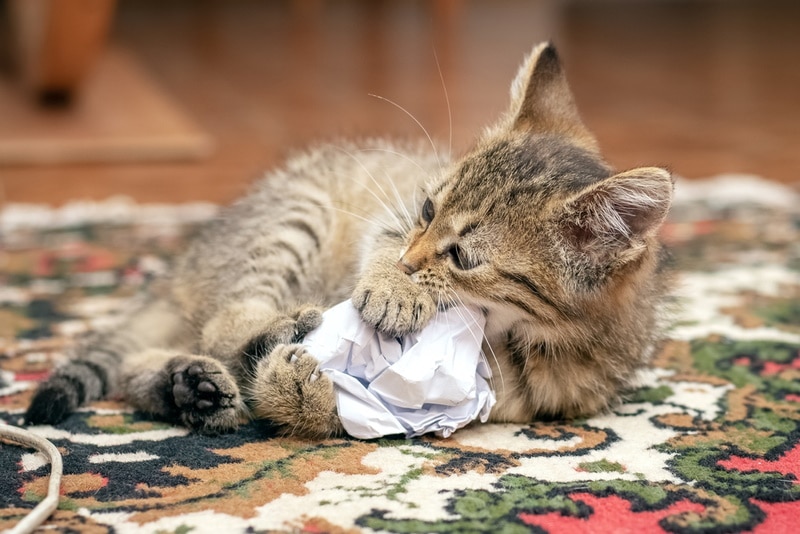
Types of Paper Cats Eat
Some cats will completely ignore certain types of paper and show an interest in others. It can be concluded that cats tend to eat a specific type of paper because they like the smell, taste, and texture.
- Books
- Paper towels
- Toilet paper
- Cardboard
- Printer paper
- Drawing sheet paper
- Magazines
Can It Be Normal for Cats to Eat Paper?
There is no normal reason for cats to eat paper, and you should consult your cat’s veterinarian if this behavior persists. However, it is normal for cats to want to chew and shred paper.
Technically speaking, a healthy cat that lives in an enriched environment should not be eating paper. If your cat has been tested for any underlying medical conditions, their environment has been checked to see if any disturbances are causing your cat to display abnormal behaviors, and your cat has plenty of interaction and mental stimulation in the form of toys, then they should not be eating paper.

How to Stop Your Cat from Eating Paper
If you can’t seem to stop your cat from eating paper, then we have a few tips that might help you.
1. Ensure That Your Cat Has Plenty of Toys and Entertainment That Keep Them Engaged
This includes chewing toys, toys they can shred, and scratching posts. This will help keep your cat mentally stimulated and they will not want to seek out other household items to play with. Most cat toys are tough enough to prevent your cat from breaking them, which reduces the chance of your cat ingesting these toys.
2. Take Your Cat to a Veterinarian So That They Can Run Tests to See if Your Cat Is Suffering From a Medical Condition
Pica, hyperthyroidism, or other issues that can increase a cat’s appetite in an uncontrolled manner must be addressed by your vet as soon as they are noticed to avoid complications. Your vet may perform blood work or imaging tests to understand your cats’ signs, find out the reason for their behavior, and start treatment as soon as possible.
3. Avoid Offering Your Cat Cardboard Boxes or Items to Play with, as the Smell Is Like Paper
Cardboard is much thicker than paper, which makes the paper easier for your cat to chew and accidentally ingest. Swop out cardboard boxes for cat-friendly hideouts and cat trees.
4. Closely Monitor Kittens and Teach Them What Items Are Right for them to Chew and What Are Not
Ensure that you provide your kitten with proper chewing toys to distract them from wanting to chew and eat paper instead.
5. Limit Access to Paper
Keep all desk papers in drawers or under paperweights so that no pieces of paper can fall from the desk. Keep magazines and books in enclosed spaces out of your cat’s reach.
Final Thoughts
Even though your cat or kitten looks adorable shredding and chewing on paper, the risks associated with this behavior are not worth it. Instead, we recommend directing your cat’s attention to another type of toy that may interest them. Fortunately, there are so many different types of cat toys on the market today that you will not have a difficult time choosing one.
We hope that this article has helped you better understand why your cat may be eating paper, and why it is not safe for them to do so.
Featured Image Credit: fill, Pixabay




